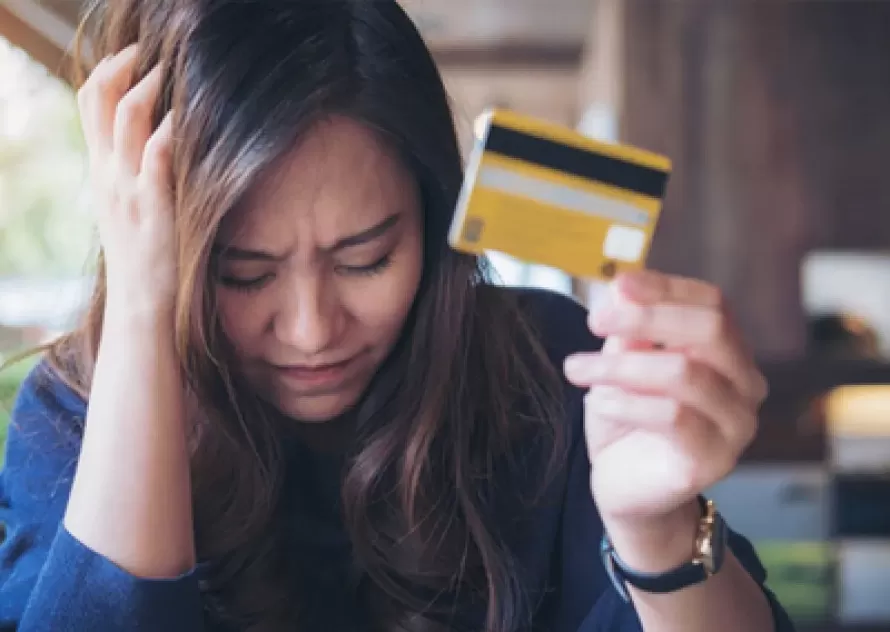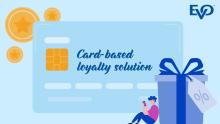What Happens When You Default on a Credit Card?

A credit card default happens when you stop making the minimum payments on your credit card for a long time, usually for six months or more. While this isn’t something anyone wants, it happens more often than you might think.
In India, a lot of people struggle with credit card debt, and many find it hard to manage. The number of defaults is on the rise, with banks noticing more people falling behind on payments. If you have a credit card, here’s what you should know about defaults and how they can affect your credit:
What is a credit card default?
A credit card default happens when you stop paying the minimum amount for a long time, usually for six months or more. When this happens, your bank or credit card company will charge you late fees, penalties, and might increase your interest rates.
If you miss a payment for 30 days, your account is considered overdue. After missing payments for six months, your account will be in default. This can hurt your credit score and make it harder to get loans or credit in the future.
What to Expect When You Default on a Credit Card
If you fail to make the required minimum payments within the specified period, typically after 180 days, the creditor may close your account and write off the balance as a loss. The outstanding debt is then typically sold to a debt collection agency, although the exact timeline can vary depending on your credit card issuer.
Once your debt is handed over to a collection agency, they may try to recover the money by taking legal action. First, they will usually contact you through phone calls, emails, or letters to ask for payment. If you still don’t pay, they may go to court and take steps like deducting money from your salary or claiming a right over your property until the debt is cleared.
The Hidden Consequences of Credit Card Default
- Late Payment Fees and Interest Charges: When you miss a credit card payment, late payment fees are applied, which increase the amount you owe. Additionally, interest continues to accumulate on the outstanding balance, making it more difficult to manage your finances over time.
- Negative Impact on Credit Score: Defaulting on a credit card has a significant negative effect on your credit score. Each missed payment is reported to credit bureaus, which results in a lower score. This can severely affect your ability to obtain loans, mortgages, or even secure favorable interest rates in the future.
- Legal Action: In extreme cases, the bank may initiate legal proceedings against you to recover the debt. This can involve court cases, additional legal fees, and the stress of potential legal judgments, all of which can further complicate your financial situation.
- Debt Collection Agencies: If the bank is unable to recover the debt, your account may be handed over to a debt collection agency. These agencies often operate under stricter rules and may employ more aggressive tactics to collect the outstanding amount.
- Decreased Credit Limit: As a precautionary measure, banks may reduce your credit limit if you default on your credit card. This restriction can limit your financial flexibility and negatively impact your credit utilization ratio, which could lead to an even lower credit score.
How to Handle Credit Card Payment Default: Actionable Steps
- Contact Your Bank: The first step when facing a credit card default is to contact your bank. Many banks offer solutions such as converting your credit card balance into manageable EMIs or providing a personal loan to help you settle the debt.
- Make a Partial Payment: Even if you can’t pay the full amount, making a partial payment shows your intent to resolve the issue. This can help reduce penalties and minimize the interest that continues to accrue, signaling to creditors that you are committed to clearing the debt.
- Seek Professional Help: If you find yourself overwhelmed by the situation, consider seeking professional assistance from financial advisors or credit counseling services. These professionals can offer personalized advice, assist in creating a realistic repayment plan, and even negotiate with creditors on your behalf to help resolve your debt.
How to Prevent Defaulting on Your Credit Card Payments
To avoid defaulting on your credit card payments, consider the following strategies:
- Pay More Than the Minimum: Paying more than the minimum payment each month helps reduce your outstanding balance more quickly. This not only saves you money on interest but also decreases the overall amount you owe, making it easier to manage your debt.
- Build an Emergency Fund: Life is unpredictable, and unexpected expenses can arise at any time. Establishing an emergency fund can help you cover unforeseen costs without resorting to credit cards, ensuring you remain financially secure and avoid relying on credit.
- Monitor Your Spending: Be mindful of your spending habits. Avoid spending more than you can afford by creating a budget. A well-planned budget can help you manage your finances, stay within your means, and maintain control over your debt, preventing potential defaults.
How to Improve Your Credit After Defaulting on Your Credit Card
If you’ve defaulted on a credit card, it can hurt your credit score, but there are steps you can take to start improving it.
- Make Timely Payments: Your payment history is the biggest factor in your credit score. Try to make at least the minimum payment on time every month. This will help improve your credit score over time.
- Get a Secured Credit Card: A secured credit card requires you to make an upfront deposit, which becomes your credit limit. It’s a good option for people with poor credit. Using this card responsibly can help you build a good payment history and improve your credit.
- Keep Your Balances Low: Just because you have a high credit limit doesn’t mean you should use it all. The amount you owe affects 30% of your credit score. Try to keep your balances low to improve your credit score.
- Work with a Credit Counselor: Even if you don’t file for bankruptcy, a credit counselor can help you create a payment plan and negotiate with creditors. They can also teach you how to manage your money better to avoid falling into debt again.
The Bottom Line
Credit card defaults happen after missing payments for a long period, usually 180 days or more. This can hurt your credit score and increase your debt due to extra charges. But even if you have credit card debt, you can take steps to improve your credit. Consider getting a secured credit card or working with a credit counselor to manage your debt and avoid more in the future.




Leave a Reply